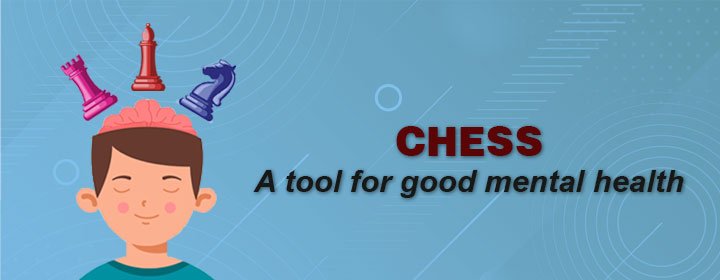Chess is not just a leisurely pastime. It can also help keep your brain sharp, active and healthy.
Beyond the board, the game offers a range of mental health benefits, proven by science.
Let’s look at 3 of the important ones.
Improving memory
It’s no secret that chess players are known for having extremely sharp memory.
Ask a chess player about their favorite opening. And watch how they show you all the moves on the board, without pausing for once.
So, what’s the secret behind memory?
Some have talent. While for others, it’s often repetition and practice. Over time, they just happened to develop a good memory. And research even proves that chess is useful for improving memory.
A shield against Alzheimer’s disease
Alzheimer’s disease is characterized by a decline in cognitive skills and memory loss. It’s a major health concern for people who’re aging.
Chess could help prevent or delay the onset of Alzheimer’s disease. Why? Because it forces the brain to engage in mentally stimulating activities.
There’s a lot of scientific research too that proves chess helps prevent Alzheimer’s.
Boosting creativity by holding 2 contrasting ideas
In chess, you have to learn to attack and also defend.
You have to play fast, but also slow down on critical moments.
You play tactical. Sometimes you play positional.
As you can see, a chess player is willing to embrace 2 polar opposite ideas depending on the situation. They’re prepared to think outside the box. They have to be creative.
This often forces them to use both sides of the brain, fostering creativity. And as always, there’s research to back this too.
Final thoughts
These are just a few benefits of how chess is good for mental health. There are many more benefits, like it improves reading skills, and problem-solving skills, teaches how to fight while at the same time being respectful of the opponent.
So go ahead, play the game more often. Your brain will be happy that you achieved that!































